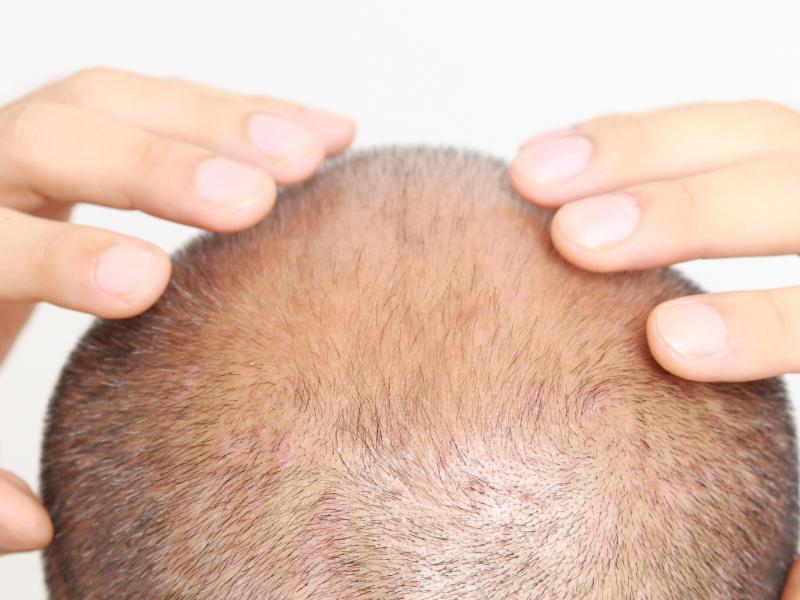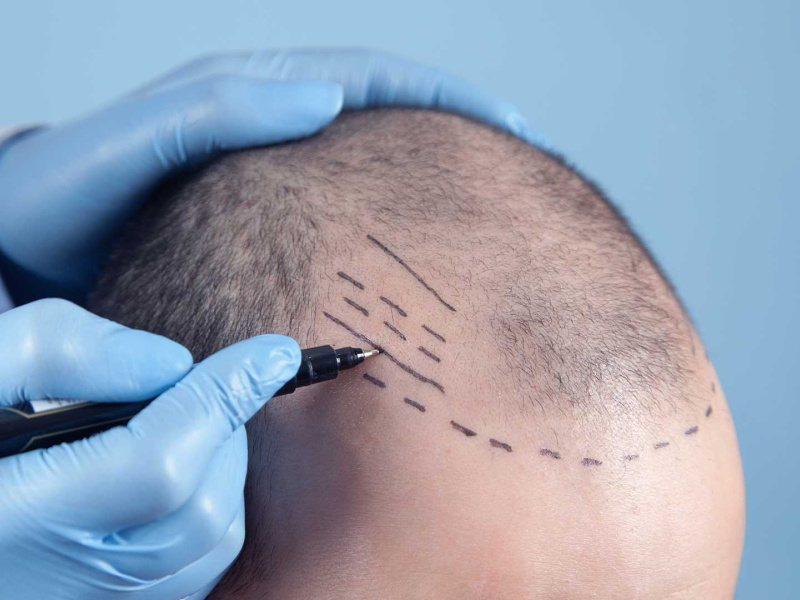What is the Shock Loss effect?
Shock Loss is a sudden loss of natural hair, which occurs directly after a hair transplant. This phenomenon is due in most cases to trauma caused by the grafts, either in the donor or recipient area.
Hair loss after the transplantation of implants is considered a temporary side effect that affects about 5% of patients. Hair loss should not be confused with shock loss. These phenomena are different, where the former is related to the loss of the newly transplanted hair, which is part of the normal growth cycle of the transplanted hair, while shock loss affects the original hair as a result of damage to the scalp, with a new cycle of "hair loss - recovery - regrowth".
Causes of Shock Loss
Also called telogen effluvium, shock loss is a disorder that causes excessive hair loss due to a change in the growth cycle. When new follicles are transplanted around already weakened native hair (affected by baldness), the implantation will accelerate their loss. Following the transplant, the blood flow can be blocked and affect the surrounding vessels, which also causes hair loss or shedding.
In any case, this phenomenon should not become a source of anxiety for the patient. This phenomenon lasts for 2 weeks and then hair regeneration takes place.
Another cause that can further accelerate hair loss is the pressure caused by the grafts, if the incisions made seem to be very close and influence the fragility of the already existing follicles.
Is telogen effluvium permanent?
Tissue trauma from hair surgery is a bad time for very few patients, but fortunately, it is only a temporary condition.
Thus, reactionary hair loss stops after 3 months.
How to prevent hair loss?
Before embarking on hair surgery, a consultation with a qualified surgeon should be done to determine if you have enough inter-follicular space for the transplant.
The fight against hair loss is aided by medications such as minoxidil and finasteride. These inhibit the loss of pre-existing hair. As a result, new hair growth is encouraged after 6 to 12 months of the procedure.
To reduce the shock loss effect, a scarless hair transplant (FUE) is sophisticated and less traumatic for the scalp.
How long does it take for hair to grow back after shock loss?
Hair loss after transplant surgery can last up to 2 months. The amount of hair lost varies from person to person and can be partial, or it can affect the entire scalp.
Fortunately, the hair will gradually grow back after a short time.
Generally, from the 4ᵉ month mark, the rate of regrowth accelerates.
Patience is very important throughout the regrowth period.
How do you maintain your scalp after a hair transplant?
To properly maintain the scalp, the patient must adopt a healthy lifestyle while avoiding the consumption of alcohol and tobacco. These limit the oxygenation of the hair by impeding blood circulation.
Eating foods rich in iron (liver, red meat...) and zinc (oysters, seafood) can extend the life of the hair.
Nevertheless, you should always follow your doctor's instructions and recommendations to obtain healthy hair.





